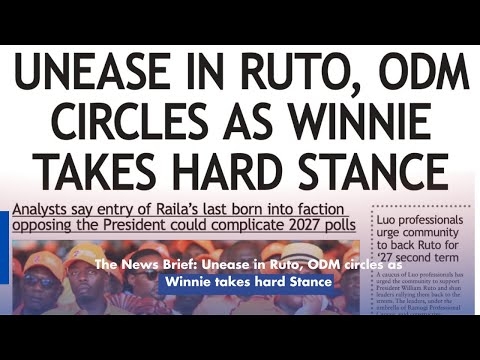If you are a keen reader of the opinion columns in our mainstream newspapers, then by now you will have noticed a trend that began just a few years ago. This is that very many such columns are written by people who define themselves as “communications experts”.
But that is only one title. Other options are “media strategist” or maybe “digital communications consultant” or "media outreach adviser”.
I could go on.
What is particularly interesting is that if we are to judge by the absence of any specific institutional affiliation, most of these men and women are self-employed consultants. And given the state of the economy, the unavoidable question is, who exactly employs such consultants?
Admitting that my knowledge of this field is limited, I would answer that such consultants have been major beneficiaries of the 2010 Constitution, and the advent of devolution.
No self-respecting governor is without two or three such consultants, dedicated to his political survival or advancement, and often paid “off the books” (ie, they are not officially employed by the country government, but are paid by the governor from his or her own resources).
No doubt senators, MPs and other elected officials – not to mention Cabinet Secretaries – also need their own media advisors. But I think it is the governors who need them most.
But what do such consultants do precisely?
For the kind of consultant that I have described, my information is that what we formally refer to as “media monitoring” constitutes a major part of the job. Indeed, many such consultants would more accurately define themselves as “media monitoring experts” instead of some of those grander titles that they prefer.
Think about it. If you were a governor, would you not want to know the published details of what your rivals are plotting against you? Or if there is a report about you, which would humiliate you in front of your friends and family, would you not want to know about it as soon as possible?
Yet governors are incredibly busy men and women. Forget the caricature that is so widely believed that all they do is drive around in large convoys raising dust as they speed past. Yes, they do that: but they are usually going to attend some very specific appointment relating to some very real project. Plus whenever they are in their offices, they have to contend with large numbers of place-seekers, patiently waiting to see them.
So busy are they that they barely have time to skim through a newspaper. And yet it is in precisely such newspapers where you will find some allegation of corruption in one county; of nepotism in another county; or in yet another county, reports of a series of failed projects, previously “launched” with great ceremony.
So, anyone who can keep tabs on what is in the mainstream media and not only inform the governor of the latest bad news, but also advise him or her on what to do about it, could be very valuable to the governor.
And then there is social media, which is a whole different jungle, with its own denizens, and thus requiring perhaps even keener monitoring.
Of course, there will also be an official communications team at the county headquarters as well. But those are essentially technocrats, who must follow the chain of command. My impression (admittedly based on limited acquaintance with the operations of country governments) is that the media team at the county headquarters mostly serve as speechwriters.
What any governor who means to remain in public life for a long time really needs are advisers who can get in touch with him or her very quickly and give due warning of what has happened and immediately suggest remedies.
And this is where the problem arises for any media consultant:
Have you ever tried to advise a Kenyan politician? If you have, then you will agree with me that they rarely listen. The successful Kenyan politician invariably believes that he understands better than anyone else how to handle any situation that arises.
Short of finding themselves in a deep hole, from which there is no visible escape, Kenyan politicians in general rarely follow what their media consultants tell them.
















